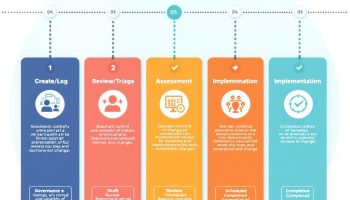
Role of a Program Management Director
As a director of program management, you’ll serve as the critical bridge between high-level corporate vision and tactical execution, transforming strategic objectives into measurable business outcomes. This senior leadership role requires exceptional skills in prioritizing competing demands, fostering innovation, and implementing transformative programs across various organizational environments.
Key Takeaways:
- Translate long-term business objectives into actionable programs with measurable strategic value
- Balance competing priorities while maintaining focus on organizational goals
- Drive organizational transformation through strategic program management
- Build and lead high-performance teams capable of navigating complex initiatives
- Establish governance frameworks that promote accountability and continuous improvement
Your position connects the executive vision to practical implementation. Successful program directors understand how to align projects with business strategy while addressing immediate operational needs. This dual focus helps create sustainable value for stakeholders at every level.
Effective directors excel at resource allocation across multiple initiatives. You’ll need to make tough decisions about which programs receive priority funding and attention. This prioritization skill becomes particularly important during periods of organizational change or limited resources.
Communication stands as perhaps your most valuable tool. Clear, consistent messaging ensures your teams understand program objectives and their connection to larger organizational goals. Your ability to communicate effectively across different departments directly impacts program success.
The modern program management director must embrace technology and data analytics. These tools provide crucial insights for tracking progress, identifying risks early, and making informed adjustments to program direction. Your comfort with digital transformation will give your organization a competitive advantage.
Leadership development remains essential to your success. Building teams that can handle complex challenges requires identifying talent, providing growth opportunities, and creating a culture of accountability. Your leadership approach should combine strategic guidance with practical support for your team members.
Risk management becomes increasingly important as programs grow in complexity. You must develop systems to identify potential issues early and create mitigation strategies that protect program objectives without stifling innovation or progress.
Financial oversight represents another critical responsibility. Program directors track budget performance, justify expenditures, and demonstrate return on investment. Your financial acumen helps secure continued support for your initiatives from executive leadership.
Stakeholder management requires sophisticated interpersonal skills. You’ll need to identify key stakeholders, understand their needs and concerns, and maintain their engagement throughout program lifecycles. This relationship-building capability often determines whether programs receive necessary organizational backing.
“In the role of a program management director, you become the essential link that transforms ambitious corporate visions into actionable programs, driving measurable results amidst the complexity of competing priorities. Through effective leadership and a commitment to continuous improvement, you empower high-performance teams to innovate and execute transformative initiatives that align with overarching organizational goals.”
Strategic Leadership: The Director of Program Management Role
As a director of program management, you’ll bridge the gap between executive vision and operational execution. This senior leadership position demands expertise in overseeing complex programs that drive business transformation and innovation. With competitive compensation ranging from $140,000-$180,000 annually (with top performers in tech and finance exceeding $200,000), this role typically reports to a VP of Program Management, COO, or functional executive across corporate, tech, nonprofit, and government sectors.
Driving Organizational Strategy and Alignment
Your primary responsibility is translating long-term business objectives into actionable programs that deliver measurable value. You’ll participate in senior staff meetings to shape the company agenda and adjust strategies as market conditions evolve. As director of program management, you must balance competing priorities against limited resources to maximize return on investment for your organization.
This strategic role requires you to continuously reassess trade-offs, ensuring all programs contribute to broader business goals. You’ll need to master strategic planning techniques to effectively connect day-to-day execution with your company’s vision. When working with stakeholders, you’ll establish clear communication channels to maintain alignment and manage expectations.
The following elements are critical for successful strategic alignment:
- Developing comprehensive program roadmaps tied to organizational objectives
- Creating measurement frameworks that track progress against strategic goals
- Establishing feedback loops to quickly adapt to changing business conditions
- Prioritizing initiatives based on strategic importance and resource availability
- Building cross-functional partnerships to drive cohesive execution
Effective governance frameworks form the foundation of your delivery excellence strategy. You’ll define models and repeatable practices that ensure program success while establishing performance standards across your portfolio. This includes implementing delivery frameworks that promote transparency and accountability throughout the program lifecycle.
Your leadership extends to building high-performance teams, typically directing 5-10 concurrent programs through teams of program and project managers. You’ll foster a culture of accountability and continuous improvement while coaching team members to achieve their potential. This requires exceptional interpersonal skills to navigate ambiguity, resolve conflicts, and solve complex problems that arise during program execution.
As a director of program management, your ability to balance strategic vision with tactical execution will determine your success in driving organizational transformation and delivering meaningful results.
Expert Insight: As a Director of Program Management, your ability to strategically align programs with long-term business objectives is paramount; develop comprehensive roadmaps that not only guide execution but also integrate feedback loops for adaptability. Prioritize initiatives based on strategic importance and resource availability, fostering cross-functional partnerships to ensure cohesive execution and maximize ROI. Cultivating a high-performance team culture, characterized by accountability and continuous improvement, will empower you to effectively navigate challenges and drive successful program outcomes.
Driving Organizational Strategy and Alignment
As a director of program management, you’ll serve as the critical bridge between high-level vision and on-the-ground execution. You’ll translate long-term business objectives into actionable programs that deliver measurable results. This senior leadership position requires you to balance competing priorities while maintaining focus on strategic outcomes.
You’ll regularly participate in executive meetings to shape the company’s direction and adjust strategies based on emerging opportunities. Your ability to master strategic planning becomes essential as you evaluate which initiatives deserve investment and which should be deprioritized.
Effective directors of program management continuously reassess trade-offs to ensure programs contribute to broader business objectives. You’ll need to:
- Align program portfolios with organizational strategy
- Evaluate resource allocation across multiple initiatives
- Adjust program direction when business priorities shift
- Create mechanisms for measuring program impact
- Develop frameworks that connect execution to strategic vision
Your success hinges on maintaining clear project communication between executive leadership and implementation teams. As programs evolve, you’ll need to communicate strategic changes while keeping teams focused on delivering value.
Resource Optimization and ROI
The director of program management must optimize limited resources to maximize return on investment. You’ll make tough decisions about where to invest time, talent, and budget to achieve the greatest strategic impact.
| Responsibility | Strategic Impact | Required Skills |
|---|---|---|
| Portfolio Prioritization | Ensures resources flow to highest-value initiatives | Strategic thinking, business analysis |
| Resource Allocation | Maximizes productivity across programs | Capacity planning, resource management |
| Risk Management | Protects strategic investments | Risk assessment, mitigation planning |
| Performance Monitoring | Drives accountability for strategic outcomes | Metrics development, results analysis |
| Stakeholder Alignment | Builds consensus around priorities | Executive communication, influence |
This balancing act requires you to develop deep critical success factors for each program while maintaining the flexibility to adapt as market conditions change. The most effective directors of program management excel at communicating trade-offs to stakeholders and building consensus around difficult resource decisions.

Establishing Governance Frameworks and Delivery Excellence
As director of program management, you’ll create governance structures that transform complex initiatives into delivered business value. Your ability to establish these frameworks directly impacts how organizations execute their most strategic programs.
Effective governance requires setting clear parameters for decision-making, escalation paths, and accountability measures. You’ll design systems that balance oversight with flexibility, ensuring programs remain adaptable while maintaining appropriate controls. This includes defining stage gates, establishing review cycles, and creating transparent reporting mechanisms that keep stakeholders informed without overwhelming them.
Program delivery excellence comes from standardizing methodologies while allowing for customization based on program complexity and organizational culture. You’ll implement frameworks that ensure consistency across your portfolio while establishing delivery frameworks that accommodate different program types.
Risk Management and Performance Monitoring
Your role demands proactive identification and mitigation of risks at both program and portfolio levels. This includes developing comprehensive risk registers and effective risk response plans that address potential threats before they materialize. As director of program management, you’ll establish early warning systems to detect performance issues and implement corrective actions.
Performance monitoring requires more than status tracking—it demands meaningful metrics that reflect progress toward strategic goals. You’ll create dashboards that provide real-time visibility into program health, highlighting areas requiring attention while celebrating successes. This visibility helps you manage upstream and downstream dependencies efficiently.
By establishing these governance frameworks, you’ll drive consistency across your organization’s program portfolio. Your role connects executive vision with operational reality, ensuring programs don’t just execute activities but deliver meaningful business outcomes. The governance structures you implement become the foundation for how your organization translates strategy into results, making the director of program management position essential to organizational success.
Expert Insight: **Tip for Establishing Governance Frameworks and Delivery Excellence:** As a director of program management, prioritize the creation of governance structures that facilitate clear decision-making and accountability while remaining adaptable to changing program needs. Implement standardized methodologies that provide consistency across projects, ensuring they align with organizational culture and complexity. Enhance program delivery by focusing on proactive risk management and meaningful performance metrics, enabling your organization to translate strategic objectives into tangible business outcomes.
Building and Leading High-Performance Teams
As a director of program management, you’ll be responsible for orchestrating teams that deliver complex, multi-faceted initiatives across your organization. You’ll typically oversee 5-10 concurrent programs, each with their own team of program and project managers working to execute strategic priorities.
Successful directors of program management understand that their effectiveness hinges on building high-performing teams capable of navigating ambiguity while maintaining focus on deliverables. You’ll need to master effective project leadership techniques that inspire your teams to exceed expectations consistently.
Creating a Culture of Excellence
The director of program management role demands exceptional people skills. You’ll foster a culture where accountability, agility, and continuous improvement become second nature. This involves:
- Setting clear performance expectations and holding team members accountable
- Providing regular coaching and mentoring to develop your program managers’ capabilities
- Establishing processes for knowledge sharing across programs
- Creating career development pathways to retain top talent
- Implementing continuous improvement practices that enhance team effectiveness
You’ll need to employ strong delegation strategies while maintaining appropriate oversight. This balance ensures your teams can operate autonomously while still adhering to governance standards. When conflicts arise, your conflict resolution skills will prove essential for maintaining momentum.
Resource constraints are inevitable, requiring you to make tough decisions about priorities. Your problem-solving approach must consider both immediate program needs and long-term organizational goals. By developing team capabilities systematically, you’ll create a resilient program management function capable of delivering consistent results.
The director of program management position demands that you build teams with complementary skills across methodologies, industries, and technical domains. You’ll need to recognize individual strengths and deploy resources strategically to maximize impact across your program portfolio.
High-performing teams deliver 5 times more performance than average teams, driven by trust, collaboration, and a commitment to continuous improvement.
hbr.org






